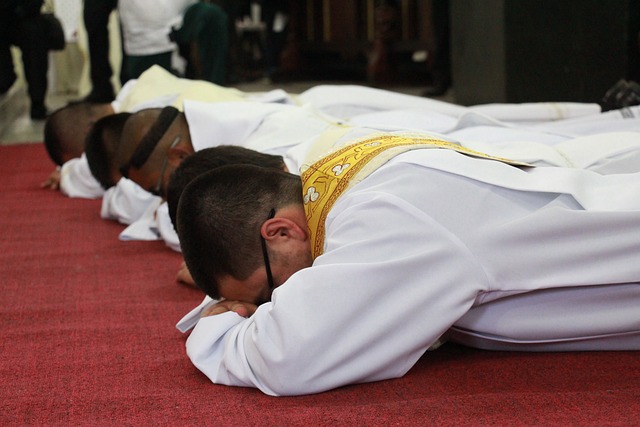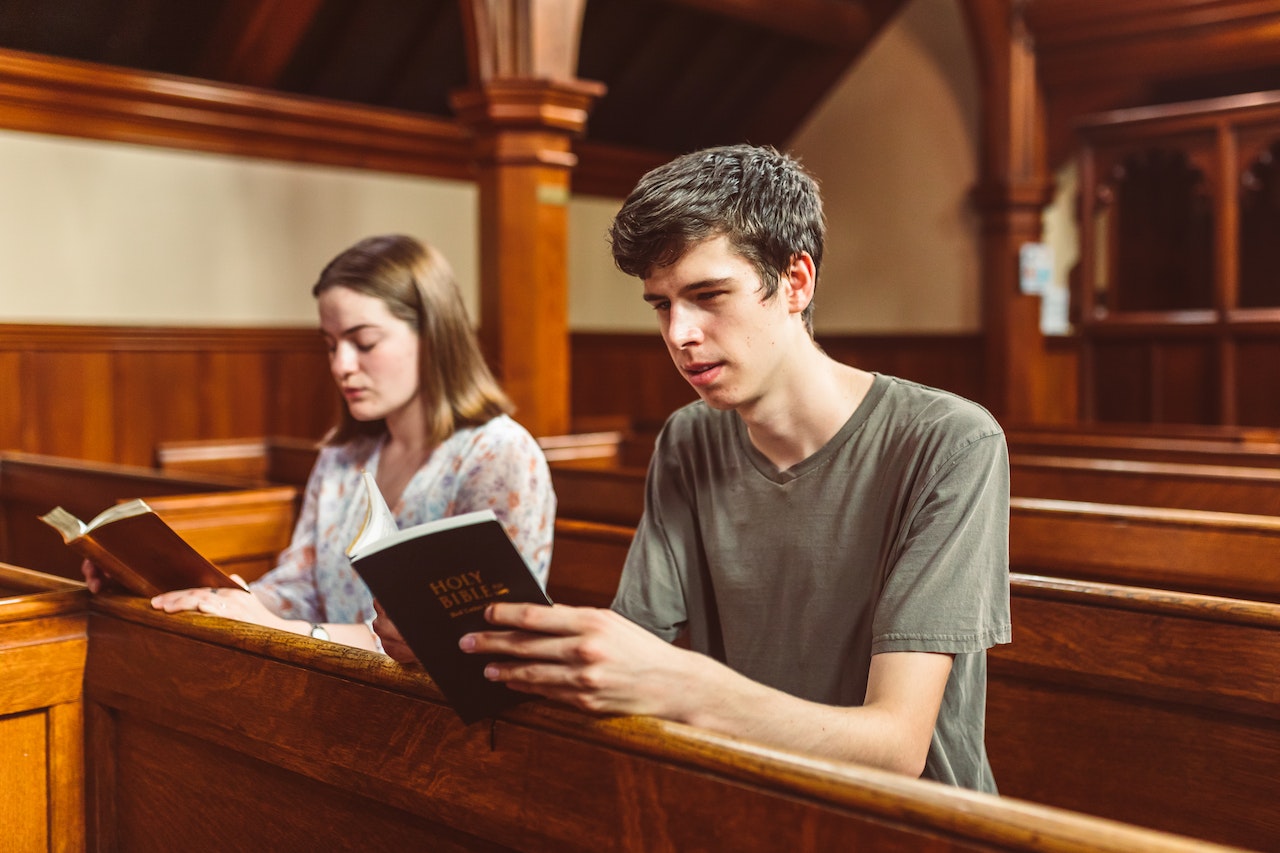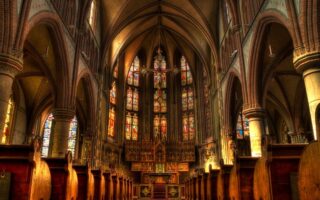Deacons in the Catholic Church play an important role in serving the community and assisting priests in various aspects of ministry. They are ordained clergy who are called to serve in a ministry of charity, word, and sacrament. Deacons can perform baptisms, witness marriages, preach, and assist in the celebration of the Eucharist. They also often work in social justice ministries, outreach programs, and other forms of service to those in need.
Table of Contents
Responsibilities of Deacons in the Catholic Church
Deacons play a vital role in the Catholic Church, serving as a bridge between the clergy and the laity. They are ordained ministers who are called to serve the Church in a variety of ways, both within the parish community and in the wider world. While deacons do not have the same authority as priests, they are still an important part of the Church’s ministry.
One of the primary responsibilities of deacons is to assist the priest during Mass. They may proclaim the Gospel, preach homilies, and assist with the distribution of the Eucharist. Deacons also have the authority to baptize, witness marriages, and preside over funeral services. In addition to their liturgical duties, deacons are also called to serve the poor and marginalized in their communities.
Deacons are often involved in social justice initiatives, working to address issues of poverty, inequality, and injustice. They may volunteer at soup kitchens, homeless shelters, or other charitable organizations. Deacons are also called to visit the sick and homebound, bringing them the comfort of the sacraments and the presence of the Church.
In addition to their pastoral and charitable work, deacons are also called to be leaders in their communities. They may serve on parish councils, lead Bible studies, or teach religious education classes. Deacons are often seen as a source of wisdom and guidance, offering spiritual support to those in need.
Deacons are also called to be witnesses to the Gospel in their everyday lives. They are expected to live lives of holiness and virtue, setting an example for others to follow. Deacons are called to be humble, compassionate, and selfless, putting the needs of others before their own.
Overall, deacons play a crucial role in the life of the Catholic Church. They are called to serve the Church in a variety of ways, from assisting with the liturgy to serving the poor and marginalized in their communities. Deacons are called to be leaders, teachers, and witnesses to the Gospel, embodying the values of the Church in their everyday lives.
In conclusion, deacons are an essential part of the Catholic Church, serving as a link between the clergy and the laity. They are called to serve the Church in a variety of ways, from assisting with the liturgy to serving the poor and marginalized in their communities. Deacons are called to be leaders, teachers, and witnesses to the Gospel, embodying the values of the Church in their everyday lives.
Importance of Deacons in the Catholic Church
Deacons play a crucial role in the Catholic Church, serving as a bridge between the clergy and the laity. While they may not receive as much attention as priests or bishops, deacons are an integral part of the Church’s ministry and mission. So, what exactly do deacons do in the Catholic Church?
One of the primary roles of deacons is to assist priests and bishops in the celebration of the sacraments. Deacons can baptize, witness marriages, and preside over funerals. They can also assist at Mass by proclaiming the Gospel, preaching, and distributing Holy Communion. In this way, deacons help to ensure that the sacraments are celebrated reverently and effectively.
Deacons also have a special ministry of charity and service. Inspired by the example of Jesus, who came not to be served but to serve, deacons are called to be servants of all. They are often involved in outreach programs, visiting the sick and homebound, and caring for the poor and marginalized. By their acts of charity and service, deacons bear witness to the love and compassion of Christ.
In addition to their liturgical and charitable duties, deacons are also called to be ministers of the Word. They are tasked with proclaiming the Gospel, teaching the faith, and promoting the Church’s social teachings. Deacons often lead Bible studies, catechism classes, and other educational programs to help deepen the faith of the faithful. By their preaching and teaching, deacons help to spread the Good News of Jesus Christ.
Another important aspect of the diaconate is the promotion of social justice and peace. Deacons are called to be advocates for the poor, the oppressed, and the marginalized. They work to address the root causes of social problems and to promote a more just and equitable society. By their advocacy and activism, deacons help to build a more compassionate and inclusive world.
Overall, deacons play a vital role in the life of the Catholic Church. They serve as ministers of the sacraments, agents of charity and service, teachers of the faith, and advocates for social justice. Through their various ministries, deacons help to build up the Body of Christ and to bring the love and mercy of God to all people.
In conclusion, deacons are an essential part of the Catholic Church’s ministry and mission. They serve as a link between the clergy and the laity, helping to bring the sacraments, charity, and Word of God to the faithful. By their example of service, compassion, and advocacy, deacons help to make the Church a more vibrant and welcoming community. So, the next time you see a deacon at Mass or in your community, take a moment to thank them for their dedication and service. They truly are a gift to the Church and to the world.
Training and Formation of Deacons in the Catholic Church

Deacons play a vital role in the Catholic Church, serving as a bridge between the clergy and the laity. But what exactly do deacons do, and how are they trained and formed for their important ministry?
Deacons are ordained ministers who are called to serve the Church in a variety of ways. They assist priests in the celebration of the sacraments, proclaim the Gospel, preach, and serve the poor and marginalized in their communities. Deacons are often referred to as “ministers of charity” because of their focus on serving those in need.
To become a deacon in the Catholic Church, men must undergo a period of training and formation. This process typically takes several years and includes both academic study and practical experience. Deacon candidates are required to have a deep faith and a strong commitment to serving others.
The training and formation of deacons in the Catholic Church is a rigorous process that is designed to prepare candidates for their ministry. Deacon candidates are required to complete a program of theological and pastoral formation, which includes courses in scripture, theology, liturgy, and pastoral care. They also receive training in the practical aspects of diaconal ministry, such as preaching, counseling, and working with the poor.
In addition to their academic studies, deacon candidates are also required to participate in pastoral placements, where they gain hands-on experience working in a parish or other ministry setting. These placements allow candidates to put their learning into practice and develop the skills they will need to serve as deacons.
Throughout their formation, deacon candidates are supported by a team of mentors and spiritual directors who help them discern their vocation and grow in their faith. Candidates also participate in ongoing spiritual formation, including retreats, days of reflection, and other opportunities for prayer and reflection.
The formation process culminates in the ordination of the deacon, where he receives the sacrament of Holy Orders and is officially commissioned to serve the Church as a deacon. After ordination, deacons continue to receive ongoing formation and support to help them grow in their ministry and deepen their relationship with God.
The training and formation of deacons in the Catholic Church is a lifelong process that requires ongoing commitment and dedication. Deacons are called to serve the Church with humility and love, following the example of Jesus Christ, who came not to be served but to serve.
In conclusion, deacons play a vital role in the Catholic Church, serving as ministers of charity and helping to bridge the gap between the clergy and the laity. The training and formation of deacons is a rigorous process that prepares candidates for their ministry and helps them grow in their faith and commitment to serving others. Deacons are called to serve the Church with humility and love, following the example of Jesus Christ, who came not to be served but to serve.
Role of Deacons in Liturgical Celebrations
Deacons play a vital role in the Catholic Church, serving as a bridge between the clergy and the laity. While they may not receive as much attention as priests or bishops, deacons are an essential part of the Church’s ministry. One of the key responsibilities of deacons is their role in liturgical celebrations.
During Mass, deacons assist the priest in various ways to ensure that the celebration runs smoothly. They may proclaim the Gospel, lead the Prayers of the Faithful, and assist with the distribution of Holy Communion. Deacons also have the authority to baptize, witness marriages, and preside over funeral services.
In addition to their duties during Mass, deacons are also involved in other liturgical celebrations throughout the year. They may lead prayer services, conduct Eucharistic adoration, and participate in the sacrament of reconciliation. Deacons are often called upon to assist with special liturgical events, such as the Easter Vigil or the ordination of priests.
One of the most important aspects of a deacon’s role in liturgical celebrations is their ability to connect with the congregation. Deacons are often seen as approachable and relatable figures, making them a valuable resource for parishioners seeking spiritual guidance. Their presence in the community helps to foster a sense of unity and belonging among the faithful.
Deacons also play a crucial role in promoting social justice and serving those in need. Many deacons are actively involved in outreach programs, such as feeding the hungry, visiting the sick, and advocating for the marginalized. By embodying the values of compassion and service, deacons inspire others to live out their faith in practical ways.
In addition to their pastoral duties, deacons are also responsible for ongoing formation and education. They participate in regular training sessions and workshops to deepen their understanding of theology, liturgy, and pastoral care. This ongoing formation helps deacons to stay current with the latest developments in the Church and to better serve their communities.
Overall, the role of deacons in liturgical celebrations is multifaceted and essential to the life of the Church. Their presence adds depth and richness to the worship experience, helping to create a sense of reverence and awe. Deacons serve as a reminder of the Church’s mission to proclaim the Gospel and to bring God’s love to all people.
In conclusion, deacons play a vital role in the Catholic Church, particularly in the context of liturgical celebrations. Their presence enhances the worship experience and helps to foster a sense of community among the faithful. By embodying the values of service, compassion, and unity, deacons serve as a powerful example of what it means to live out one’s faith in the world. Their dedication and commitment to the Church’s mission make them an invaluable asset to the Body of Christ.
Challenges Faced by Deacons in the Catholic Church
Deacons play a crucial role in the Catholic Church, serving as a bridge between the clergy and the laity. They are ordained ministers who are called to serve the Church in a variety of ways, including assisting with the celebration of the sacraments, preaching the Gospel, and serving those in need. While deacons have a unique and important role in the Church, they also face a number of challenges in carrying out their ministry.
One of the challenges faced by deacons in the Catholic Church is the balancing act of their dual roles as ordained ministers and laypeople. Unlike priests, who are typically full-time clergy, deacons often have secular jobs and families to support. This can make it difficult for deacons to find the time and energy to fulfill their ministry responsibilities while also meeting the demands of their personal and professional lives.
Another challenge faced by deacons is the lack of understanding and recognition of their role within the Church. Many people are unfamiliar with the role of deacons and may not fully appreciate the important work that they do. This can lead to deacons feeling undervalued and marginalized within the Church community.
Additionally, deacons may face challenges in finding opportunities to exercise their ministry. While deacons are called to serve in a variety of ways, including preaching, teaching, and serving the poor, they may not always have the chance to do so. This can be frustrating for deacons who are eager to put their gifts and talents to use in service to the Church.
Despite these challenges, deacons in the Catholic Church continue to faithfully serve the Church and its members. They do so with humility, dedication, and a deep sense of love for God and their fellow human beings. Deacons are called to be servant leaders, following the example of Jesus Christ, who came not to be served but to serve.
One way that deacons can overcome the challenges they face is by seeking support and encouragement from their fellow clergy and laypeople. By building strong relationships within the Church community, deacons can find the strength and resources they need to carry out their ministry effectively. Deacons can also benefit from ongoing formation and training to help them grow in their understanding of their role and deepen their spiritual life.
Ultimately, the challenges faced by deacons in the Catholic Church are not insurmountable. With faith, perseverance, and the support of their community, deacons can continue to serve the Church and its members with joy and dedication. Deacons play a vital role in the life of the Church, and their ministry is a gift to all who encounter them. Let us pray for deacons everywhere, that they may be strengthened in their ministry and continue to be a light in the world.
Conclusion
Deacons in the Catholic Church assist priests in various liturgical and pastoral duties, such as proclaiming the Gospel, assisting with the distribution of the Eucharist, and serving the community through acts of charity and social justice. They also have the authority to baptize, witness marriages, and preside over funeral services. Overall, deacons play a crucial role in supporting the spiritual and practical needs of the Church and its members.
For licensing reasons, we must provide the following notice: This content was created in part with the help of an AI.


